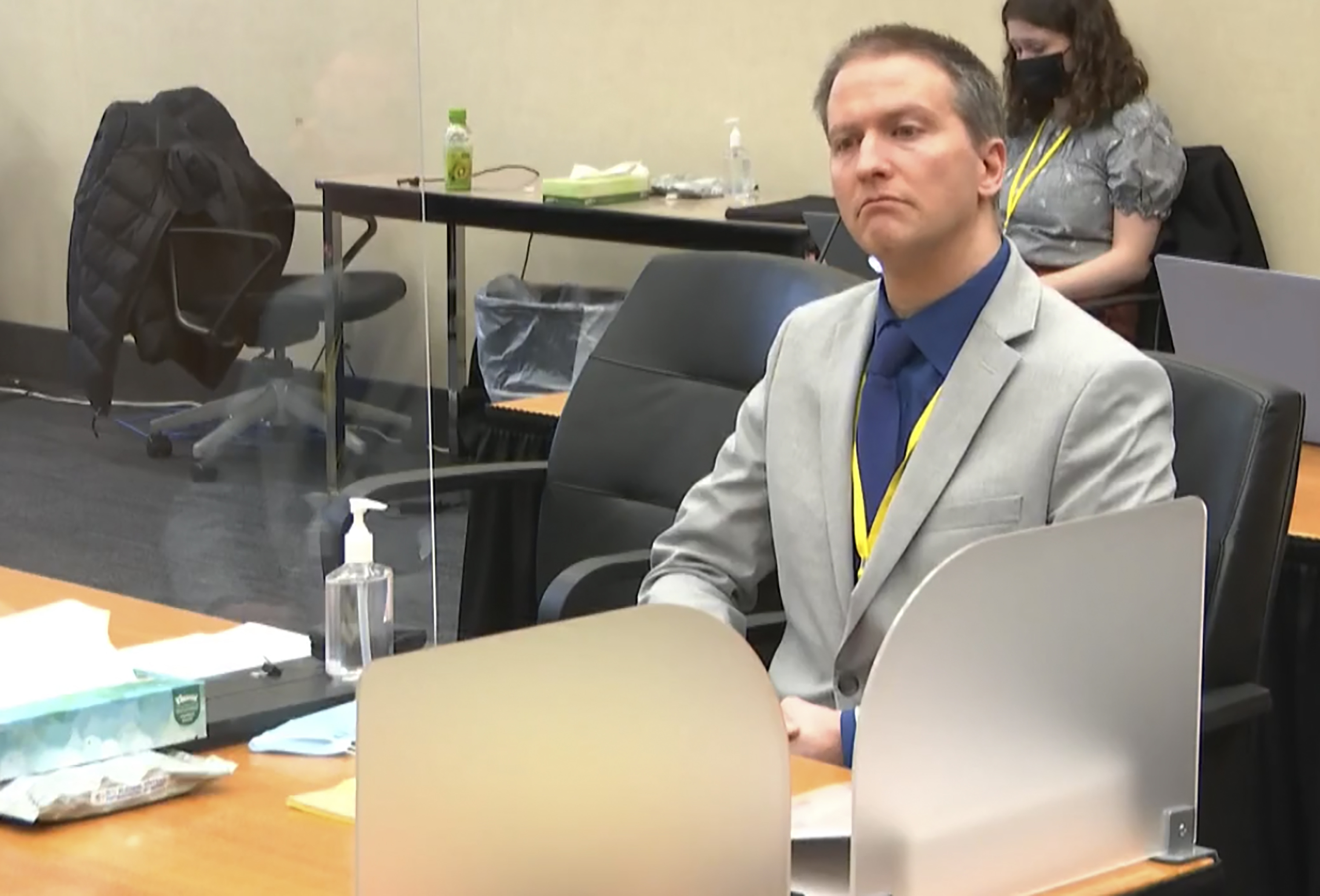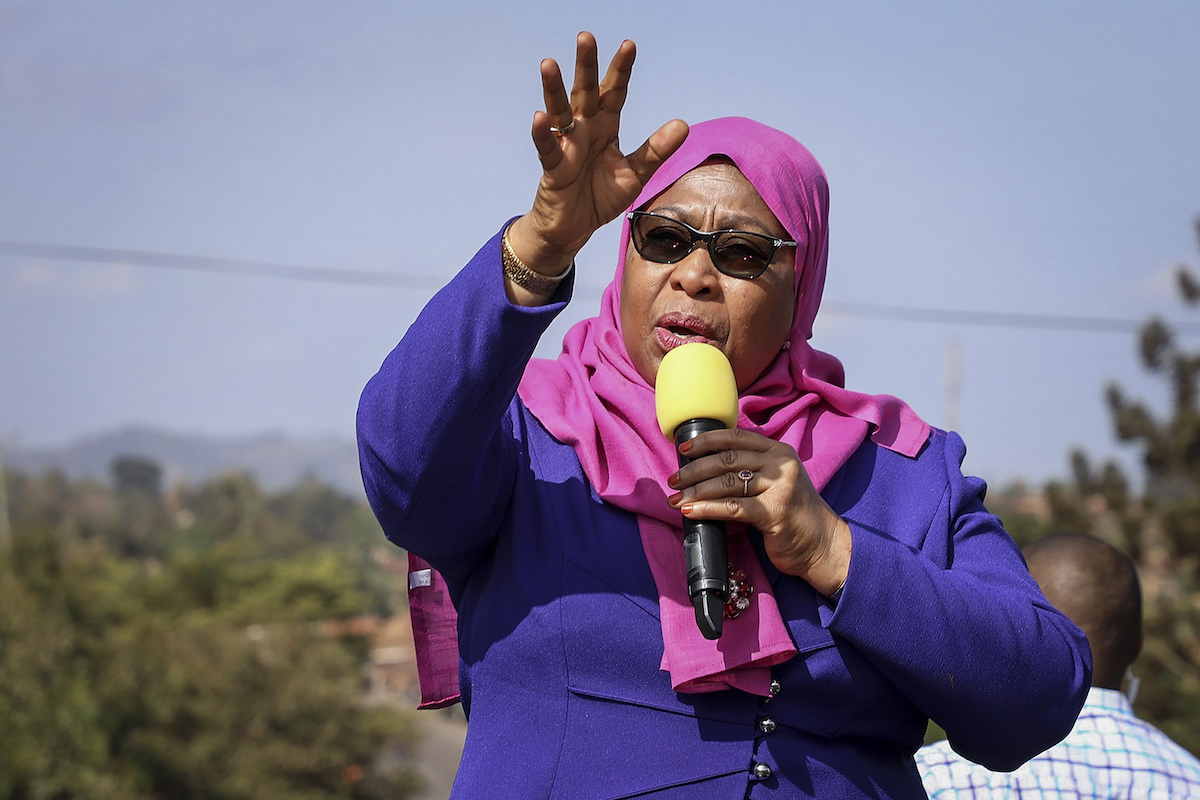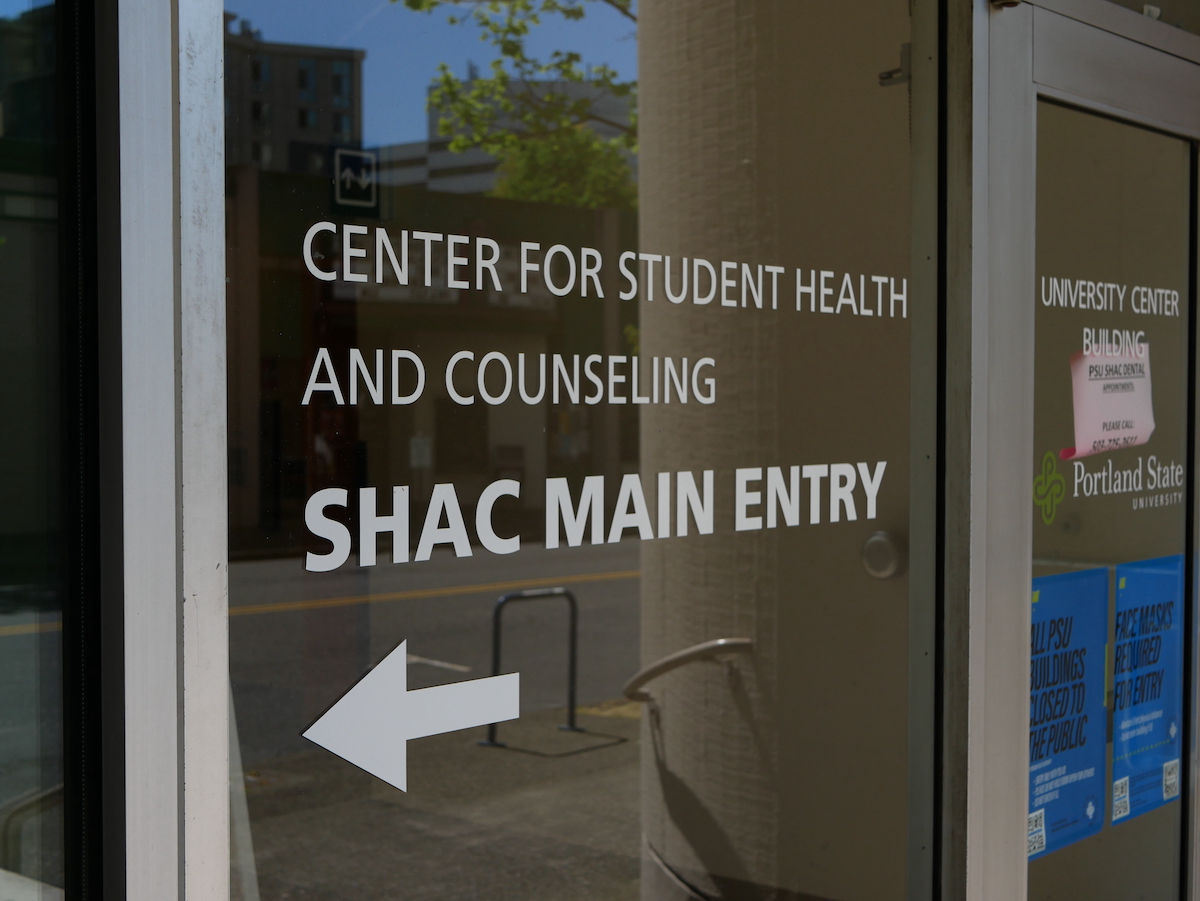The death of George Floyd, a Black man, while in police custody in Minneapolis last May ignited months of global protests calling for racial justice. The trial of Derek Chauvin, the former Minneapolis police officer facing charges in relation to Floyd’s death, is ongoing in Minneapolis.
The trial continues amid protests that have recently erupted following the death of Daunte Wright, a Black man who was shot by Minneapolis police during a traffic stop last week.
Floyd died on May 25, 2020, after Chauvin, a white 19-year veteran of the department, pressed his knee into Floyd’s neck for over nine minutes. Floyd, handcuffed, cried out for help and repeatedly said he couldn’t breathe.
Opening statements in the trial of Chauvin, who was terminated following his involvement in Floyd’s death, began in late March before 14 jurors and two alternates.
According to the official court charging documents, Chauvin is charged with second-degree felony murder, third-degree murder and second-degree manslaughter in Floyd’s death.
If convicted of second-degree murder, the most serious charge, he would face up to 40 years in prison.
Second-degree murder requires a higher burden of proof than the other charges Chauvin faces. Under Minnesota state law, prosecutors will have to prove that Chauvin caused Floyd’s death “while committing or attempting to commit a felony offense,” which is assault in this case.
The lesser charge of third-degree murder carries a penalty of up to 25 years. Hennepin County District Judge Peter Cahill, who is overseeing the trial, granted prosecutors’ request to reinstate the charge in March of this year.
The prosecution rested its case on Tuesday, April 13, with jurors having heard the testimony of nearly 40 witnesses. The defense rested its case on Thursday, April 15.
Last week, the prosecution called use-of-force experts and police officials to testify about proper use of force, and medical professionals to testify about the drugs found in Floyd’s system, trying to head off the defense’s argument that drugs played a key role in his death.
The defense, meanwhile, highlighted the effect methamphetamine and fentanyl may have had on Floyd’s heart and lungs. The defense also argued a crowd of bystanders distracted and threatened the officers, preventing them from providing care to Floyd and warranting additional force.
Philonise Floyd, George Floyd’s brother, testified Monday as a “spark of life” witness, or a witness meant to humanize the victim, a common tactic used by experienced trial lawyers.
Dr. Jonathan Rich, a cardiologist at Northwestern Memorial Hospital in Chicago, testified Monday. He concluded Floyd died when his heart and lungs stopped working, which he attributed to low oxygen levels caused by Chauvin’s restraint.
“Mr. George Floyd died from a cardiopulmonary arrest,” Rich said during his testimony. “It was caused by low oxygen levels. And those low oxygen levels were induced by the prone restraint and positional asphyxiation that he was subjected to. His death was absolutely preventable.”
Last Friday, the chief medical examiner for Hennepin County, Dr. Andrew Baker, testified the conclusions of his autopsy of Floyd, conducted last May, remained unchanged. The “top-line direct cause of [Floyd’s] death,” Baker said, was “cardiopulmonary arrest as a result of him being subdued, restrained and his neck compressed by law enforcement.”
Seth Stoughton, a law professor at the University of South Carolina, former police officer and use-of-force expert, testified Monday “no reasonable officer would have believed that that was an appropriate, acceptable or reasonable use of force.”
His repeated use of the word “reasonable” during his testimony was in reference to the standard that an officer can use only as much force as is “objectively reasonable and necessary” to arrest someone.
Stoughton said placing Floyd in the prone position—on his stomach—when he was taken out of the police car was inappropriate because he did not pose a risk of assaulting the officers or fleeing.
Prosecutor Steve Schleicher asked Stoughton whether Floyd posed “any threat at all” to Chauvin and the other officers. “No,” Stoughton said.
Under cross-examination, Eric Nelson, Chauvin’s defense attorney, asked him, “Reasonable minds can disagree, right?”
“On this point, no,” Stoughton said.
“The prosecution needs to prove their case beyond a reasonable doubt,” said Christopher Carey, Ph.D. to Portland State Vanguard. Carey is an associate professor of Criminology and Criminal Justice at PSU and a specialist on courtroom procedure.
“The defense will then raise a motion for a directed verdict which the judge [either] denies or can withhold judgment on,” Carey explained, “and then the defense proceeds to lay out their version of the case usually with experts and other witnesses.”
“The big question is whether Chauvin will testify in his own trial,” Carey said. “Because of the Fifth Amendment he cannot be forced to testify, and the decision is solely his own. After the defense rests, the prosecution gets a chance to call any rebuttal witnesses and then both sides give the closing arguments to the jury.”
On Thursday, Chauvin declined to testify in his own defense, invoking his Fifth Amendment right to remain silent, or the right not to be compelled to self-incriminate through testimony.
The first medical expert witness called by Chauvin’s defense team faced cross-examination on Wednesday after he testified Floyd died from sudden cardiac arrhythmia and car-exhaust fumes, not a deprivation of oxygen caused by Chauvin, as the prosecution’s medical experts testified.
The defense called witnesses along these lines throughout the week, attempting to call into question the prosecution’s assertion that Chauvin’s actions directly resulted in Floyd’s death. Civil rights attorneys and criminal procedure experts have claimed much of the defense’s reasoning is racist in nature and lacking scientific or medical facts.
The prosecution and defense are expected to give closing statements on Monday, April 19.
Earlier Monday, Judge Cahill denied the defense’s request to immediately sequester the jury following unrest Sunday night in Brooklyn Center, about 10 miles north of Minneapolis, after Daunte Wright, 20, was shot and killed by police during a traffic stop.
The city of Minneapolis declared a state of emergency and a 7 p.m. curfew in response to the protests, which have persisted throughout the week.
On Wednesday, Minnesota police officer Kim Potter, who fatally shot Daunte Wright, was arrested and charged with second-degree manslaughter.
The maximum punishment for such a conviction under Minnesota state law is 10 years in prison.
According to a Washington Post database on police shootings, as of April 15, 982 people have been shot and killed by police in the last 12 months. The database shows Black men have been shot and killed by police at a disproportionately higher rate.






